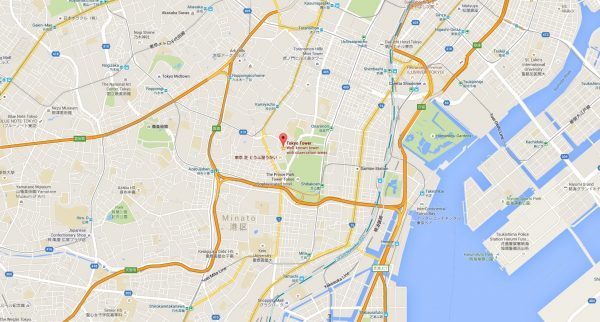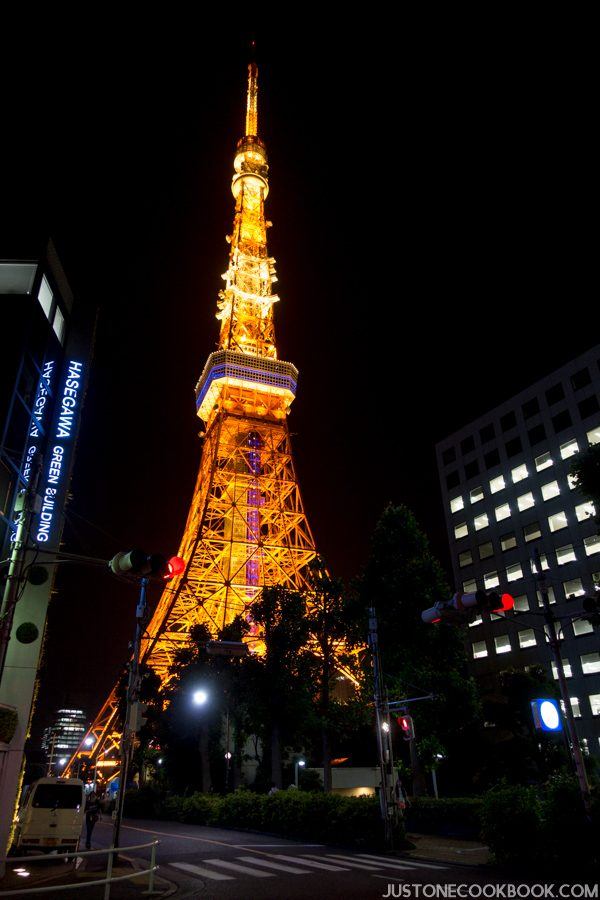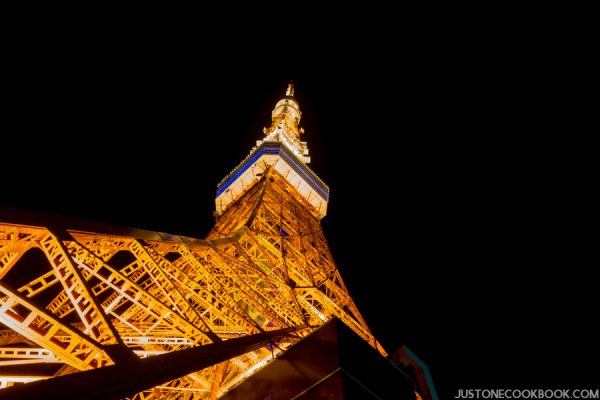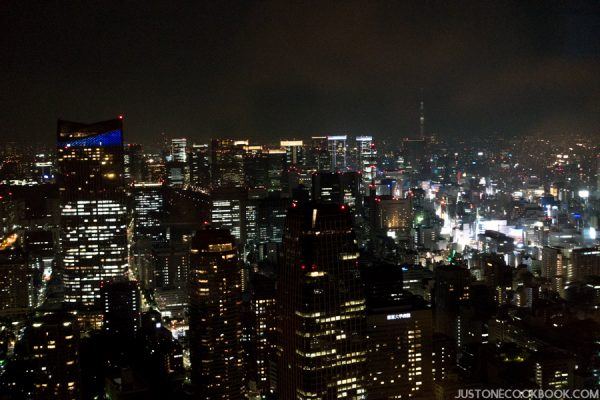
One of the most recognizable symbols for Tokyo is the Tokyo Tower, over 150 million visitors have visited this iconic orange and white tower since it opened in 1958.
During our visit to Roppongi, as we take in the panoramic view of Tokyo one of the structure that stood out the most was Tokyo Tower. It reminded us of our visit to the tower in 2015.
Tokyo Tower was at one time one of the most popular destinations for visitors in Tokyo. Since 1958, over 150 million visitors have visited Tokyo Tower but since it’s not close to other major tourist spots, the attendance has been declining. The good news for you is that there are less people fighting for prime viewing spots!
Tokyo Tower History
Until Tokyo Skytree was completed in 2012, Tokyo Tower was the tallest building/structure in Japan at 333 meters. It is still currently the second tallest building of all the skyscrapers in Tokyo. Built in 1958, the tower served as a communication tower for radio, digital television, and analog television. The design of the tower was inspired by the Eiffel Tower in Paris.
The tower completed building from start to finish in about a year and a half in 1959, with a 90-meter antenna at the top of the tower. When the tower was built, it was able to transmit signals to the entire Kanto region.
As Japan transitioned to digital television, it was not tall enough to broadcast to the region and Tokyo Skytree now has the primary duty of broadcasting digital tv signal. You might wonder why it’s painted orange and white. The answer is due to air traffic regulation rules.
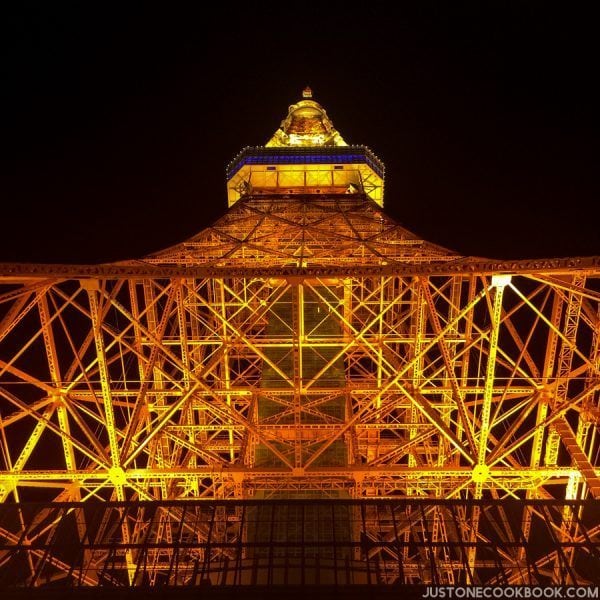
The Main Observatory at Tokyo Tower
There are two observatories at the tower; Main and Top Deck Tour. The Top Deck used to be called special observatory. The special observatory was closed from Oct 2016 – March 2018 for remodeling.
As of Sept 2018, the tickets are ¥900 yen for the Main Deck and ¥2,800 for the Main Deck and Top Deck (used to be ¥1,600 before the renovation).
The main observatory is made up of 2 floors, the elevator from the lobby goes directly to the higher level at 150m above ground.
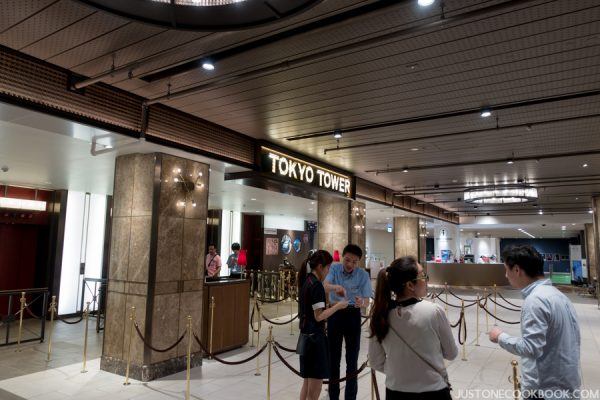
The elevator ride up to the main observatory is pretty exciting, as part of the elevator is glass and you can look out and feel yourself flying up through the steel structure.
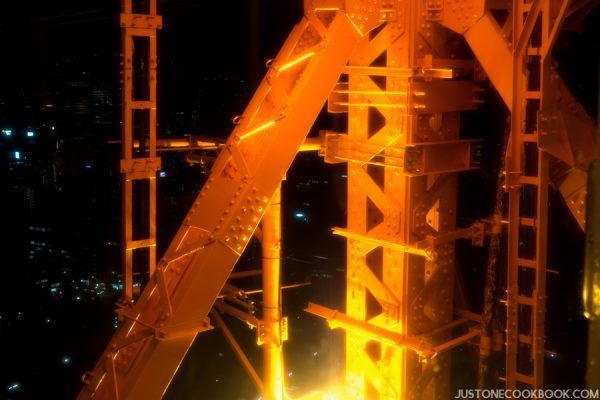
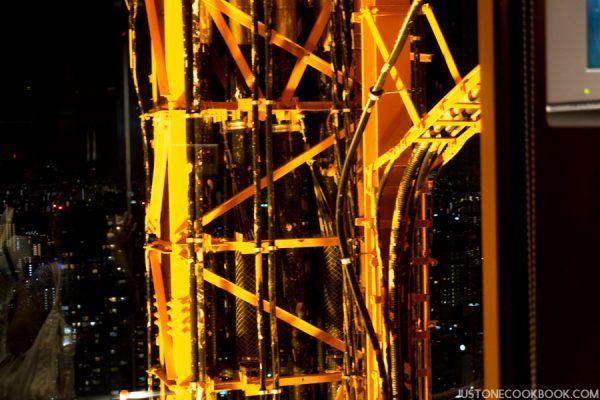
You can walk around and enjoy the panoramic view of Tokyo, browse the gift shop, or purchase the tickets for the special observatory on this floor. If you choose not to go the special observatory, you will head down to the first floor of the main observatory.
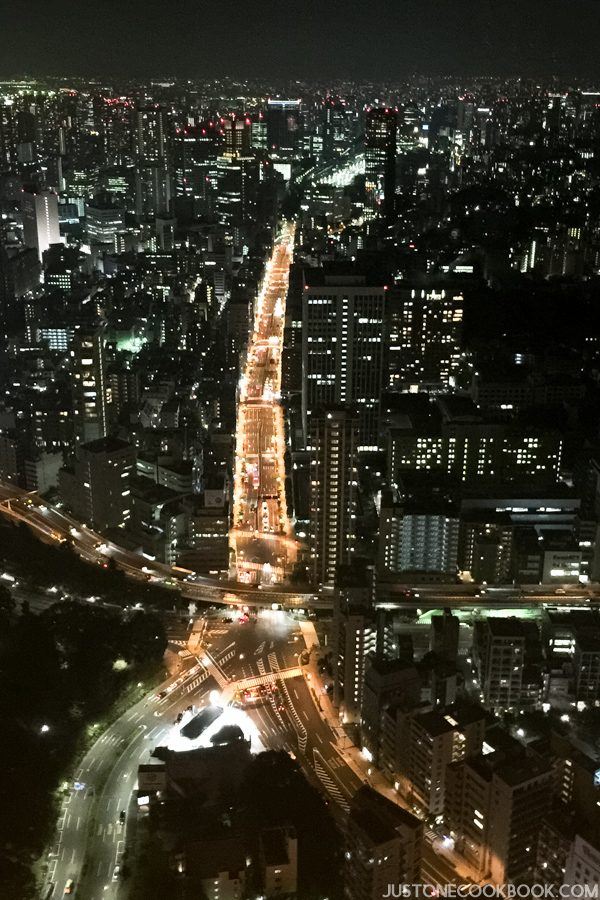
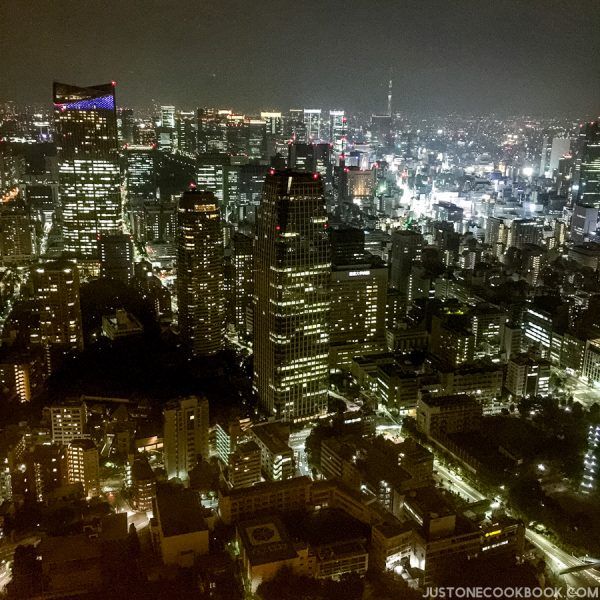
On the first floor, the tower has special illumination depending on the season and timing of your visit. We were there during the Milk Way Illuminations. This summer, they had Tokyo Tower City Light Fantasia light show.
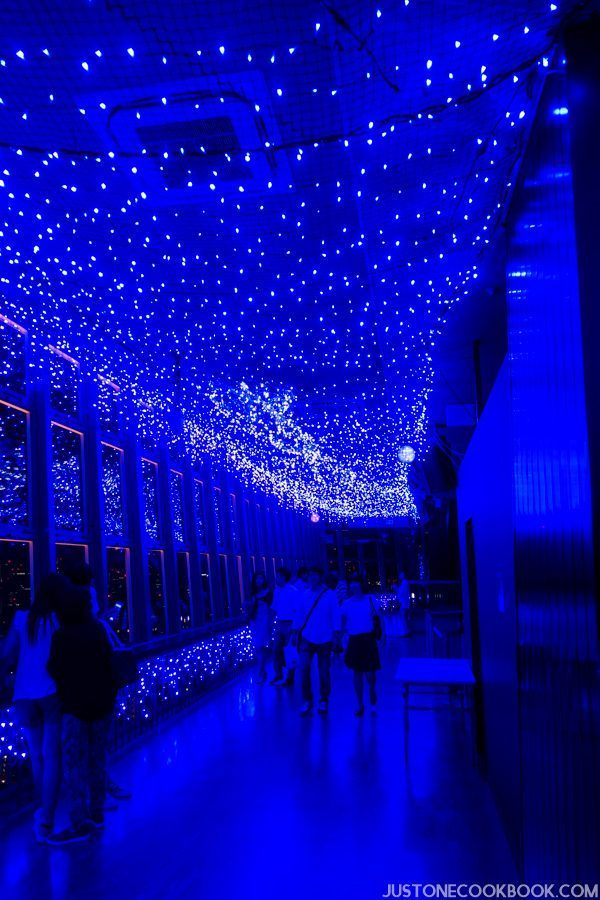
Another cool feature on this floor is the look down window, as you can see the ground 145 meters below you.
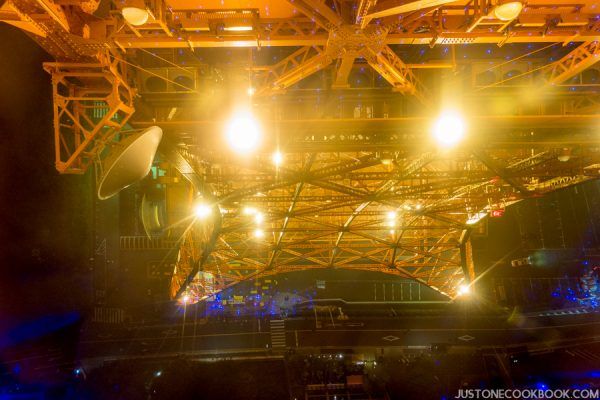
The Special Observatory at Tokyo Tower
During our visit, we opted to go to the special observatory at 250m above ground. It was remodeled starting in 2016 and reopened in March 2018. We’re not sure what it looks like now but the view from the higher observatory was breathtaking.
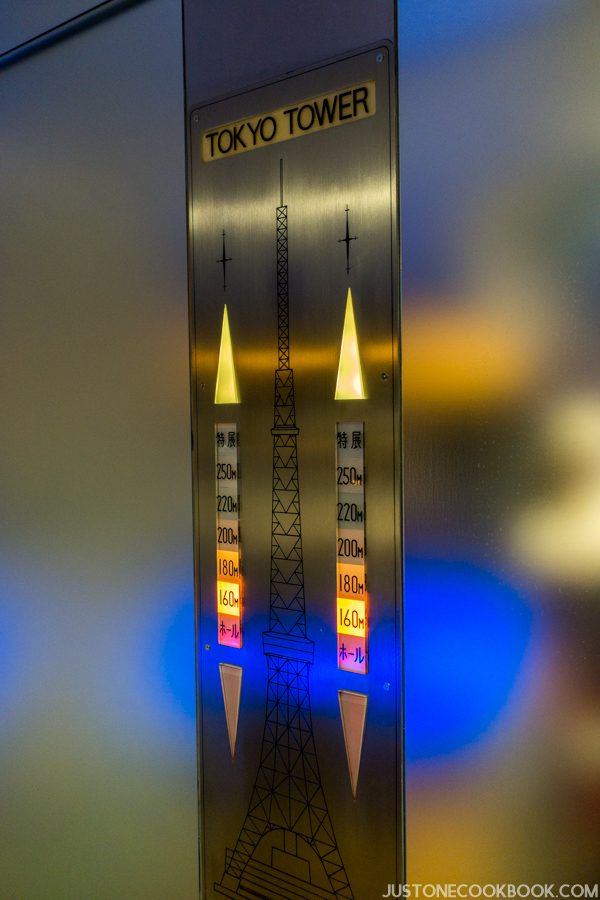
The top observatory space was much small but had an amazing view of Tokyo. We were lucky and visited on a very clear night so we could see the expansive view of the city. Since the tower is located in a central location compared to Tokyo Skytree, I personally feel the views are better.
Here are some of the pictures I took from the special observatory at night time.
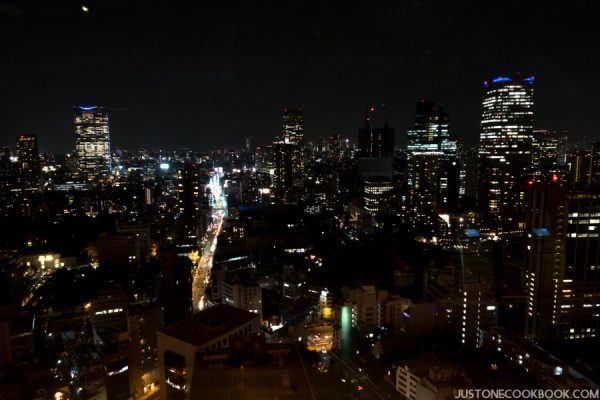
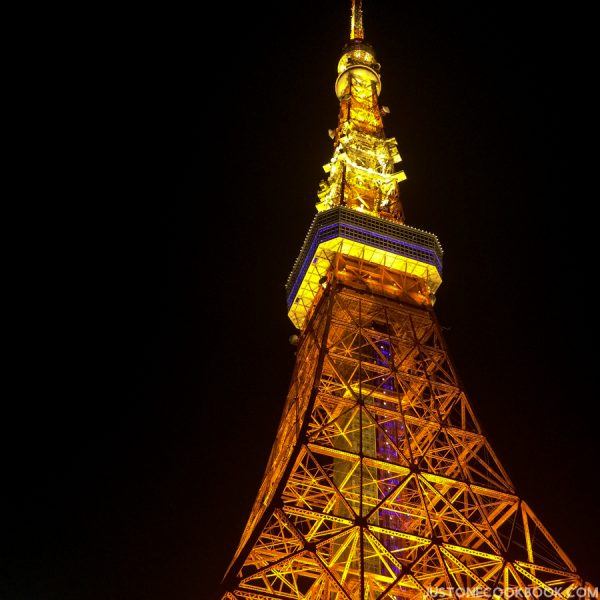
Fun Facts:
- One-third of the steel used for the construction of the tower was from US tanks damaged in the Korean War
- The tower is painted orange and white to comply with air safety laws
- There is a Shinto shrine on the main observatory deck

Don’t want to miss a post? Sign up for the FREE Just One Cookbook newsletter delivered to your inbox! And stay in touch on Facebook, Google+, Pinterest, and Instagram for all the latest updates.

